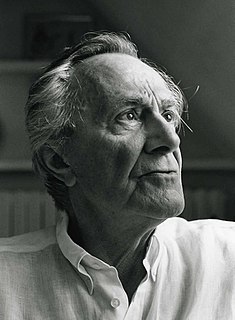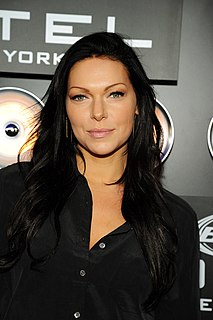A Quote by Jean-Francois Lyotard
What guides Marxism, then, is a different model of society, and a different conception of the function of the knowledge that can be produced by society and acquired from it
Related Quotes
The classics of Marxism talked of communism as a society to which a modern society should aspire, a society truly fair, where the relations of monetary exchange were not the priority but one wher the people's needs could be satisfied, and where people would not be worth more according to how much monetary wealth they acquired. Instead their value would be based on their contribution to society as a whole. It would be a society without class that would accept people based on their capabilities and their potential to contribute to that society.
Industrial Society is not merely one containing 'industry,' large-scale productive units capable of supplying man's material needs in a way which can eliminate poverty: it is also a society in which knowledge plays a part wholly different from that which it played in earlier social forms, and which indeed possesses a quite different type of knowledge. Modern science is inconceivable outside an industrial society: but modern industrial society is equally inconceivable without modern science. Roughly, science is the mode of cognition of industrial society, and industry is the ecology of science.
A different conception of society, very different from that which now prevails, is in process of formation. Under the name of Anarchy, a new interpretation of the past and present life of society arises, giving at the same time a forecast as regards its future, both conceived in the same spirit as the above-mentioned interpretation in natural sciences. Anarchy, therefore, appears as a constituent part of the new philosophy, and that is why Anarchists come in contact, on so many points, with the greatest thinkers and poets of the present day.
The individual has totally different interests from the society, because the society has no soul. The society is soulless. And if you become too much a part of the society, it will reduce your soul also to a non-entity. Beware, before you have lost your whole opportunity. Don't be a slave. Follow society to the point you feel is needed, but always remain master of your own destiny.
Society, community, family are all conserving institutions. They try to maintain stability and to prevent, or at least slow down, change. But the organization of the post-capitalist society of organizations is a destabilizer. Because its function is to put knowledge to work - on tools, processes, and products; on work; on knowledge itself - it must be organized for constant change.
If we desire a society of peace, then we cannot achieve such a society through violence. If we desire a society without discrimination, then we must not discriminate against anyone in the process of building this society. If we desire a society that is democratic, then democracy must become a means as well as an end.
And other people get the opportunity to leave prison, and then they do something to get put back in there because they can't actually function in society. It's really cool because you get to see all these different women, their backstories, where they come from, their upbringing and why they get to where they get to, and they're all completely different. It's really cool that you get to see all those storylines.
Money is what fueled the industrial society. But in the informational society, the fuel, the power, is knowledge. One has now come to see a new class structure divided by those who have information and those who must function out of ignorance. This new class has its power not from money, not from land, but from knowledge.
The concept of the "information society" is both vague and all-embracing. Different participants meant different things by it. In practice, though, World Summit on the Information Society only dealt with a small number of issues: ICTs and human rights (to some extent), ICTs and development (to some extent), infrastructure finance and Internet governance. Very large aspects of what might have been included in the "information society" were not really discussed.








































